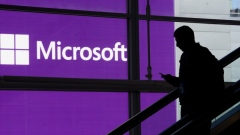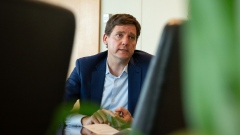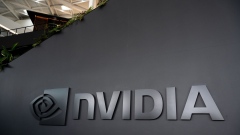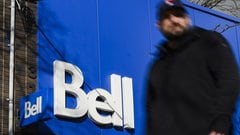May 29, 2024
Trump Jury Begins Deliberations in Historic Hush Money Case
, Bloomberg News
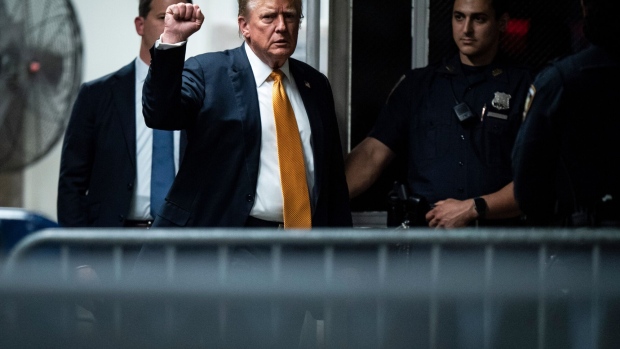
(Bloomberg) -- The New York jury weighing Donald Trump’s hush money case ended its first day of deliberations after asking to review testimony about a Trump Tower meeting that prosecutors say was central to a criminal conspiracy to boost his 2016 presidential campaign.
After a lunch break, the jury sent New York state judge Juan Merchan a note asking for testimony about an August 2015 meeting attended by Trump, his former attorney Michael Cohen and National Enquirer publisher David Pecker. The jury also asked for testimony about what both Cohen and Pecker said when they described the meeting.
Pecker testified he agreed then to help Trump’s campaign by praising him in print, punishing his rivals, and buying and burying accounts of his extramarital affairs. The panel also asked to hear testimony of how Pecker’s company paid former Playboy Playmate Karen McDougal $150,000 in 2016 to buy and bury her account of an affair with Trump a decade earlier.
The request may suggest jurors are working through the chronology laid out by prosecutors. Trump is accused of 34 counts of falsifying business records to conceal a $130,000 payment that Cohen made to adult-film actress Stormy Daniels just weeks before the 2016 election.
Pecker was the government’s first witness and jurors may want to refresh their memory about the meeting. Trump lawyer Todd Blanche argued in closing statements Tuesday that Cohen had contradicted key elements of Pecker’s testimony and shouldn’t be credited.
Testimony Excerpts
Prosecutors and Trump’s lawyers also spent more than an hour Wednesday haggling over what testimony the panel should hear. Merchan ended one dispute, ruling the jury should hear what Pecker told National Enquirer editor Dylan Howard about the arrangement he made with Trump. Blanche had argued the testimony wasn’t relevant.
“I told him that we were going to help the campaign and if we were going to do that we wanted to keep that as quiet as possible,” Pecker testified.
Over Blanche’s objections, Merchan said the excerpt should be read because it “summarizes what the plan was. The plan was to help the campaign.”
The 12-person jury got the case at 11:28 a.m., after Merchan instructed them on how to apply the law to the charges against the former president, setting the stage for a historic verdict that could impact Trump’s campaign to return to the White House.
In a second note, jurors asked to hear Merchan’s instructions again. But before jurors could review the testimony they’d asked for or the judge’s instructions, Merchan dismissed the panel for the day, saying deliberations will resume Thursday morning.
The jury could deliberate for hours or days before reaching a verdict, which must be unanimous to convict or acquit Trump. Another potential outcome could be a mistrial, which happens when the jury can’t reach a unanimous verdict.
‘Rigged’ Case
After the jury left the courtroom to begin deliberations, Trump told reporters that the case was “rigged.”
“Mother Teresa could not beat those charges,” he said. “But we’ll see.”
Earlier, Merchan urged the jury to think of Trump as any other person who deserves to be treated fairly.
“You are asked to make a very important decision about another member of the community,” Merchan said. “I know you would not want to make that off what we call implicit biases.”
The six alternates were asked to stay in the courtroom as the main panel walked out and don’t participate in deliberations. The judge thanked them for their attention to the trial but said that they need to remain in the courthouse in case their services are needed during the deliberations.
The judge started the proceedings 30 minutes later than usual Wednesday morning after jurors agreed to stay until 8 p.m. Tuesday for eight hours of closing arguments.
Read More: Trump Jury to Get Case in Hush-Money Trial. What Happens Next?
Prosecutors, who have the burden of proof, spent about five hours summarizing the testimony and evidence presented over five weeks.
Prosecutor Joshua Steinglass focused on testimony by Cohen, as well as Pecker, who both said they agreed at the Trump Tower meeting to help Trump identify and quash negative tabloid stories to help Trump’s chances before the election.
Invoices, vouchers and checks reflecting the former president’s reimbursements to Cohen in 2017 are at the center of the case. Prosecutors say Trump falsely claimed the checks were for monthly legal services.
Blanche used his defense argument to undermine the credibility of Cohen, who previously pleaded guilty to lying under oath and other crimes. Blanche also said the payments to Cohen were valid and that Trump had nothing to do with how his company handled the transactions.
(Updates with testimony from National Enquirer publisher in sixth paragraph)
©2024 Bloomberg L.P.



